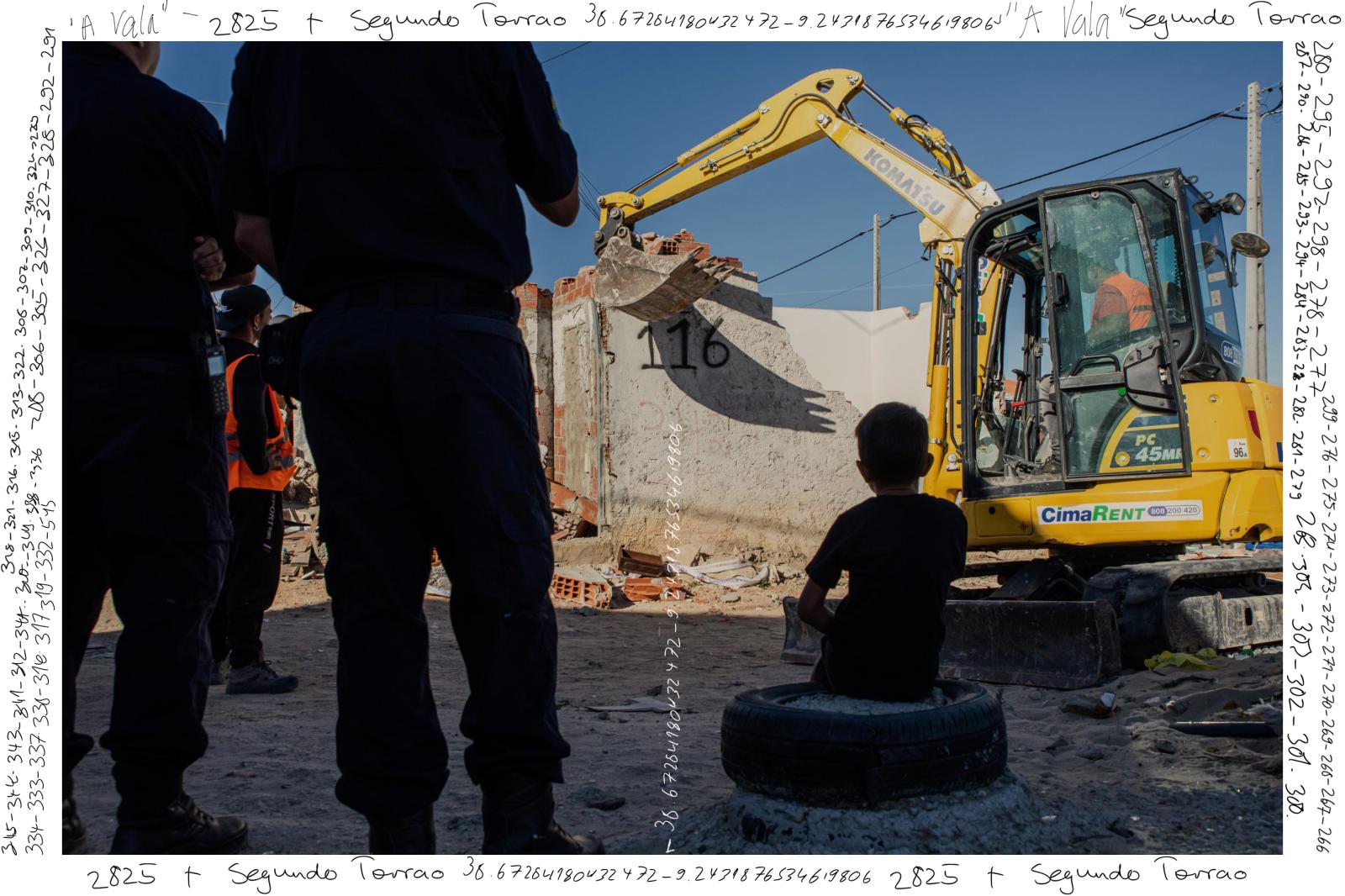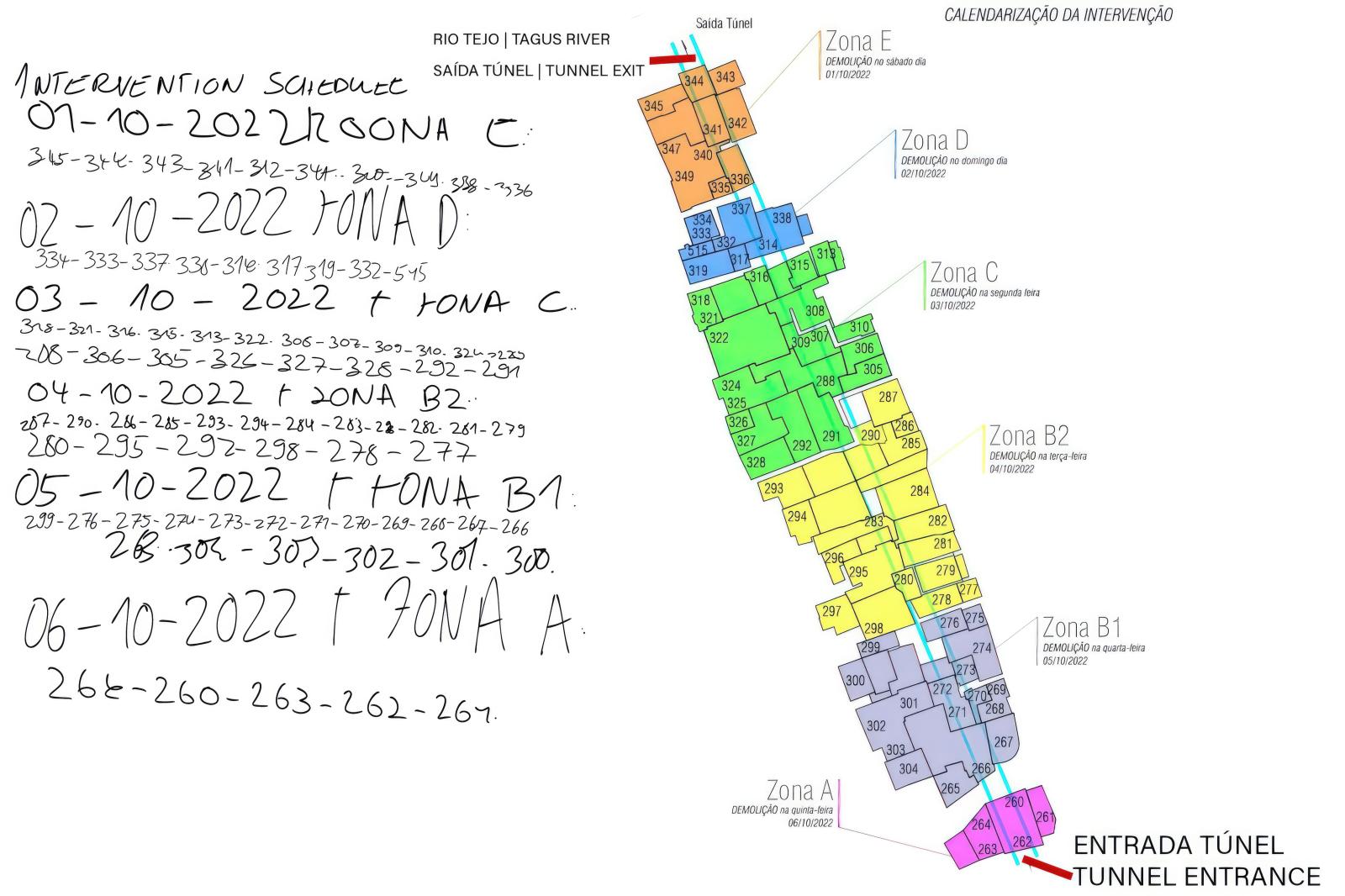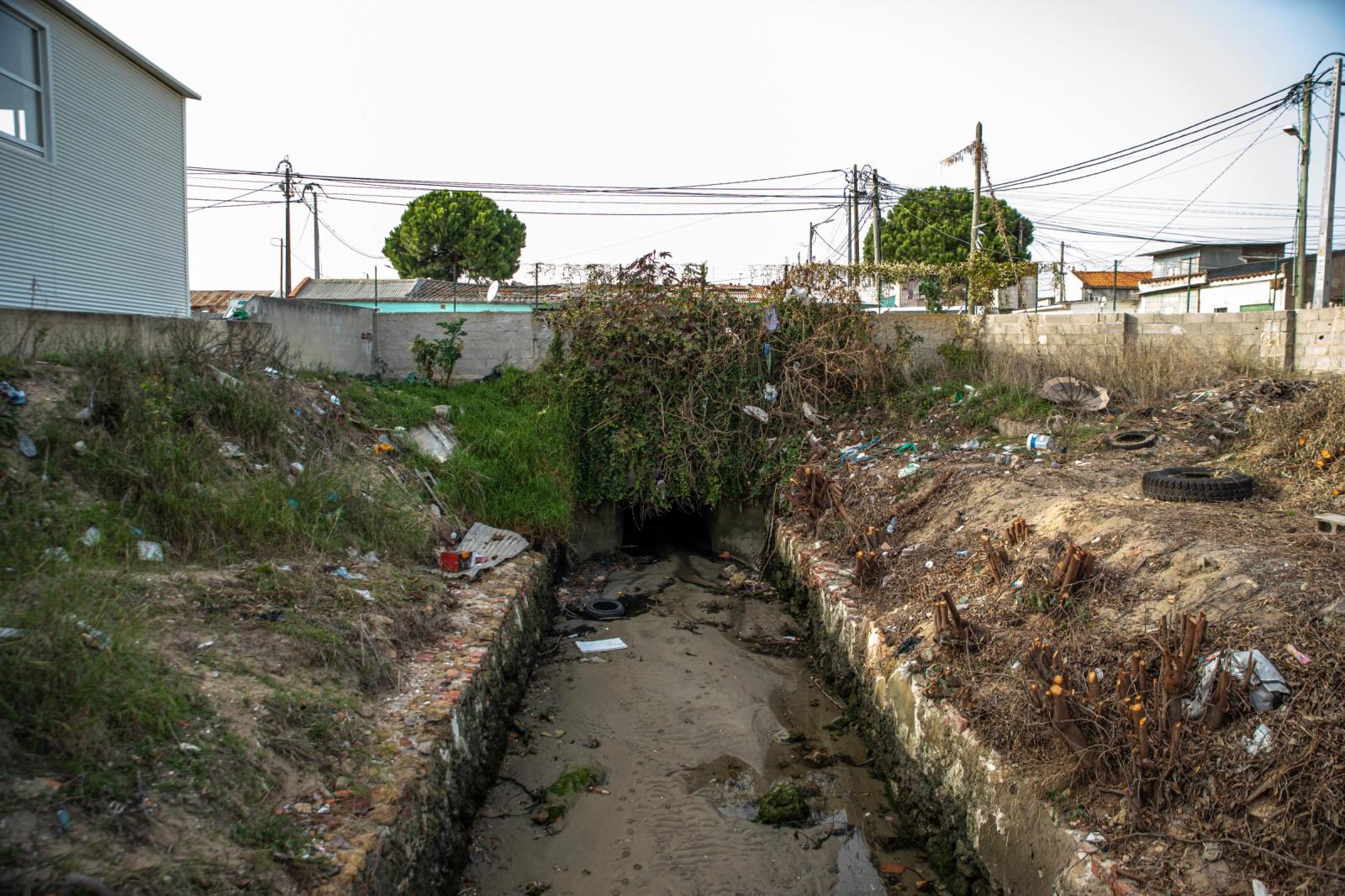Public Story
The Aftermath 2º Torrão
Summary
The 2nd Torrão neighborhood in Almada witnessed a significant event that left an enduring impact on its residents. Originally a haven for fishermen, the neighborhood evolved into a diverse community, attracting residents from Lisbon and African immigrants from former Portuguese colonies. However, on October 1, 2022, 66 families living above a deteriorating rainwater drainage ditch faced sudden demolitions due to safety concerns.
The Aftermath of the 2nd Torrão
In the 1970s, the 2nd Torrão Neighborhood began as a haven for fishermen who occupied private land and constructed sheds to store their fishing gear. Over time, it evolved into an attractive destination for Lisbon residents seeking vacation homes, with many eventually making it their permanent residence.
The neighborhood embraces African immigrants from former Portuguese colonies as well as residents and vacationers from the capital. With over half a century of history, it boasts a diverse population of over a thousand inhabitants.
The lives of 66 families living above the rainwater ditch took a dramatic turn. Machines suddenly descended upon the neighborhood, initiating the demolition of homes that had served as residences for generations. The once-unified community was thrust into a world of uncertainty and challenges. The first demolitions began on October 1, 2022, and residents were pressured to leave their homes without definitive accommodations. Documents were signed while houses were being demolished, in a noisy, exhausting environment, with no time to ponder and analyze the proposed offer. Residents who filed four requests for Emergency Precautionary Measures were excluded from the relocation processes. There is still no definitive response for all households.
According to Amnesty International, the Almada City Council claimed the need for demolitions and relocations due to "the deterioration of the rainwater drainage ditch, located under several informal buildings in the neighborhood, which threatened to collapse, putting the lives of residents at risk."
The safety of residents is a legitimate concern, and as the process progressed, controversy and mistrust grew in the community. The demolitions had a significant influence on society, which is apparent through their societal repercussions.
Some residents had to take precautionary measures to prevent their homes from being demolished until a guarantee of permanent housing was established. When they were moved to housing far from their previous residences in the 2nd Torrão, this caused significant disruption to their lives. The children were separated from their schools and had to adapt to new school environments. On the other hand, adults faced the challenge of finding employment, as geographical barriers posed difficulties in accessing their previous professional activities. Due to involuntary relocation, these residents faced unforeseen and disruptive challenges in their daily lives, resulting in considerable instability.
One year after the demolitions, the enduring emotional and physical scars underscore the pressing need for increased transparency, better oversight, and enhanced community security. These developments raise crucial questions about the role of institutions in safeguarding these communities' well-being.
Housing crisis in Portugal.
As demolitions of neighborhoods, evictions by landlords, and relocations continue to occur in several neighborhoods across Portugal, the country is facing a growing housing crisis. When adopting drastic measures, the state must ensure that it offers dignified alternatives to its citizens, as housing is a fundamental right.
Portugal's housing crisis is a complex problem that affects several aspects of society. Due to the rising cost of living and rising house prices, many families are unable to purchase or rent suitable housing, resulting in increasing housing precarity. The well-being of citizens is at risk, as is the country's social cohesion and stability.
Authorities must develop housing policies that meet the needs of the population and ensure universal access to decent housing. Finding long-term solutions to this crisis that is becoming more urgent in Portugal is crucial.
From the long-term project:
"Vala (The Ditch)," a photo documentary by Francisco Melim, we are transported to the center of a traumatic process of uprooting a community, breaking human ties, and the abrupt displacement of people and families to an unknown place. Above all, this is a story of tension and conflict between a municipality and an underprivileged neighborhood on the outskirts of Lisbon.





































